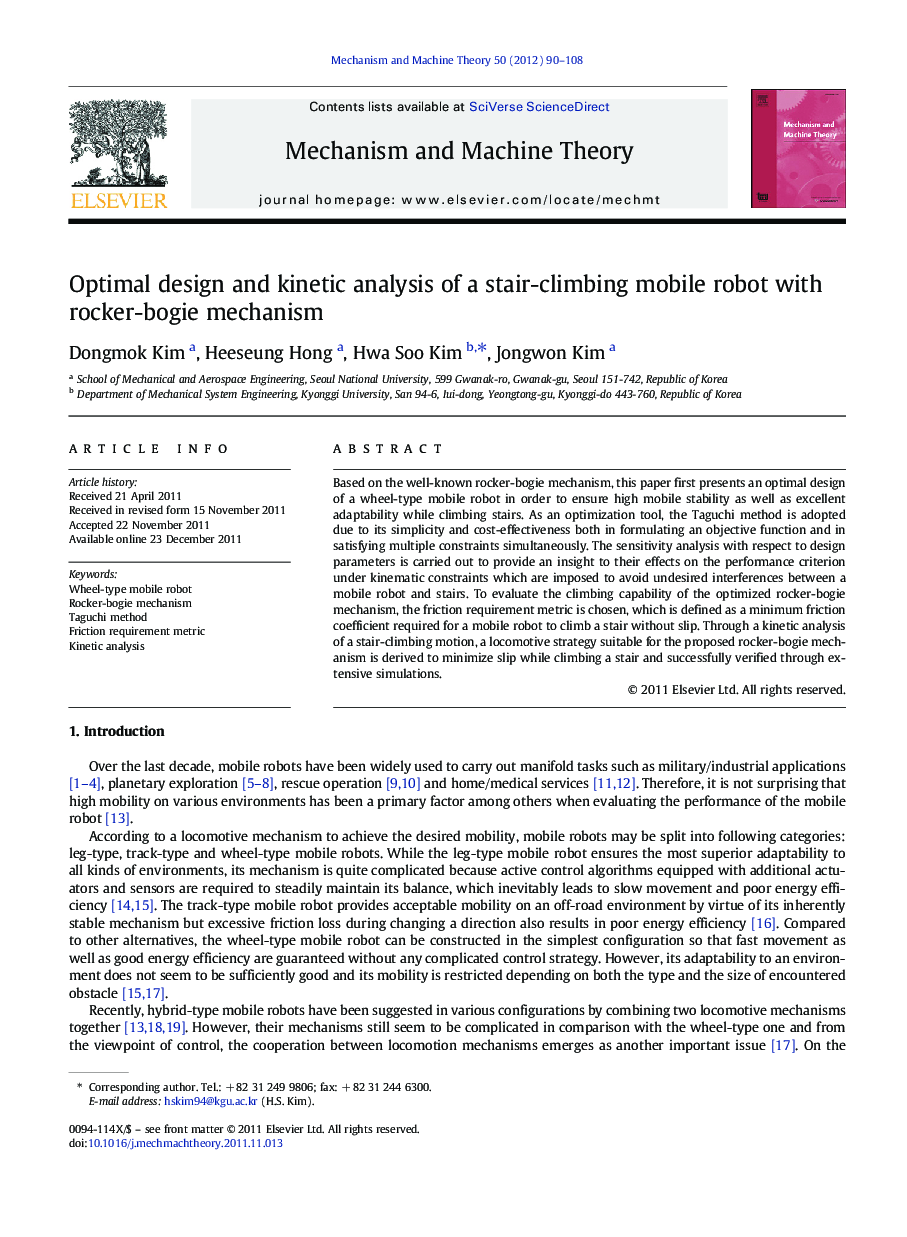| Article ID | Journal | Published Year | Pages | File Type |
|---|---|---|---|---|
| 802036 | Mechanism and Machine Theory | 2012 | 19 Pages |
Based on the well-known rocker-bogie mechanism, this paper first presents an optimal design of a wheel-type mobile robot in order to ensure high mobile stability as well as excellent adaptability while climbing stairs. As an optimization tool, the Taguchi method is adopted due to its simplicity and cost-effectiveness both in formulating an objective function and in satisfying multiple constraints simultaneously. The sensitivity analysis with respect to design parameters is carried out to provide an insight to their effects on the performance criterion under kinematic constraints which are imposed to avoid undesired interferences between a mobile robot and stairs. To evaluate the climbing capability of the optimized rocker-bogie mechanism, the friction requirement metric is chosen, which is defined as a minimum friction coefficient required for a mobile robot to climb a stair without slip. Through a kinetic analysis of a stair-climbing motion, a locomotive strategy suitable for the proposed rocker-bogie mechanism is derived to minimize slip while climbing a stair and successfully verified through extensive simulations.
► The link parameters of rocker-bogie mechanism are optimized via the Taguchi method. ► Both mobile stability and adaptability of the proposed rocker-bogie are improved. ► The kinetic analysis suggests a proper locomotive strategy to minimize slip.
